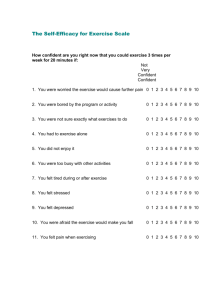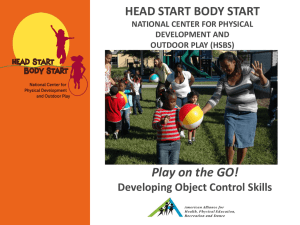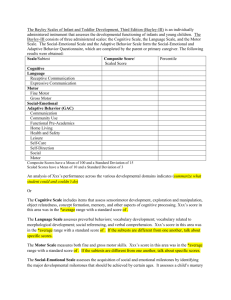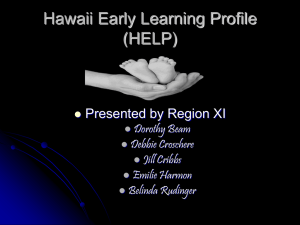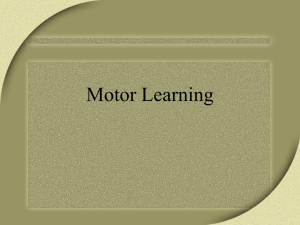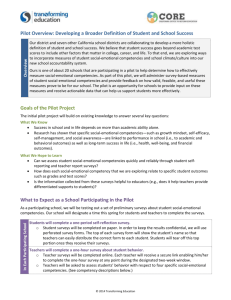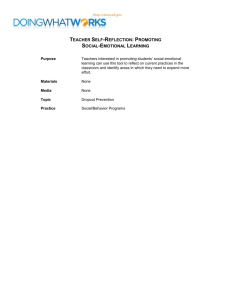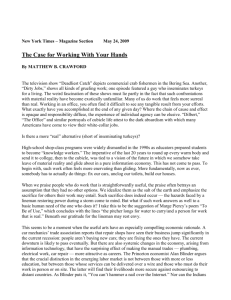TX-KEA Social-Emotional and Motor Scale Development Focus Group
advertisement
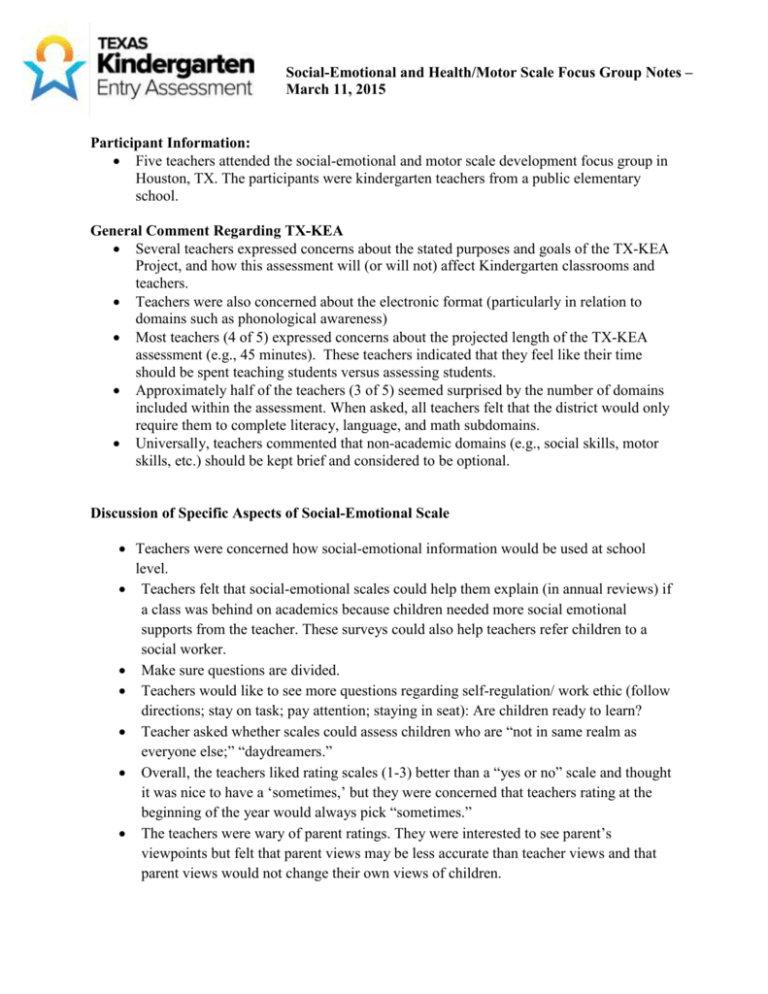
Social-Emotional and Health/Motor Scale Focus Group Notes – March 11, 2015 Participant Information: Five teachers attended the social-emotional and motor scale development focus group in Houston, TX. The participants were kindergarten teachers from a public elementary school. General Comment Regarding TX-KEA Several teachers expressed concerns about the stated purposes and goals of the TX-KEA Project, and how this assessment will (or will not) affect Kindergarten classrooms and teachers. Teachers were also concerned about the electronic format (particularly in relation to domains such as phonological awareness) Most teachers (4 of 5) expressed concerns about the projected length of the TX-KEA assessment (e.g., 45 minutes). These teachers indicated that they feel like their time should be spent teaching students versus assessing students. Approximately half of the teachers (3 of 5) seemed surprised by the number of domains included within the assessment. When asked, all teachers felt that the district would only require them to complete literacy, language, and math subdomains. Universally, teachers commented that non-academic domains (e.g., social skills, motor skills, etc.) should be kept brief and considered to be optional. Discussion of Specific Aspects of Social-Emotional Scale Teachers were concerned how social-emotional information would be used at school level. Teachers felt that social-emotional scales could help them explain (in annual reviews) if a class was behind on academics because children needed more social emotional supports from the teacher. These surveys could also help teachers refer children to a social worker. Make sure questions are divided. Teachers would like to see more questions regarding self-regulation/ work ethic (follow directions; stay on task; pay attention; staying in seat): Are children ready to learn? Teacher asked whether scales could assess children who are “not in same realm as everyone else;” “daydreamers.” Overall, the teachers liked rating scales (1-3) better than a “yes or no” scale and thought it was nice to have a ‘sometimes,’ but they were concerned that teachers rating at the beginning of the year would always pick “sometimes.” The teachers were wary of parent ratings. They were interested to see parent’s viewpoints but felt that parent views may be less accurate than teacher views and that parent views would not change their own views of children. Social-Emotional and Health/Motor Scale Focus Group Notes – March 11, 2015 Teachers felt that quiet and ‘difficult’ children were hard to rate; successful children were easier to rate. Discussion of Specific Aspects of Health and Motor Scales Teachers felt they did not have enough opportunities to watch their children utilize gross motor skills in order to give accurate ratings. They felt that the evaluation of motor skills was not as highly valued at the district level compared to academic skills. Even if a child has a motor delay, it would take the district several months to arrange for a student to be evaluated. Teacher felt they may not have supports needed to refer a child for intervention, and that most children struggled some with motor skills and that these would be outgrown. Teachers felt that they would not be able to evaluate some questions typically included in surveys about health and safety. For example, many surveys ask teachers to rate whether or not a child has the ability to navigate safely in his community (e.g., safely crossing the street). Teachers said that if this was important “ask the parents”.


